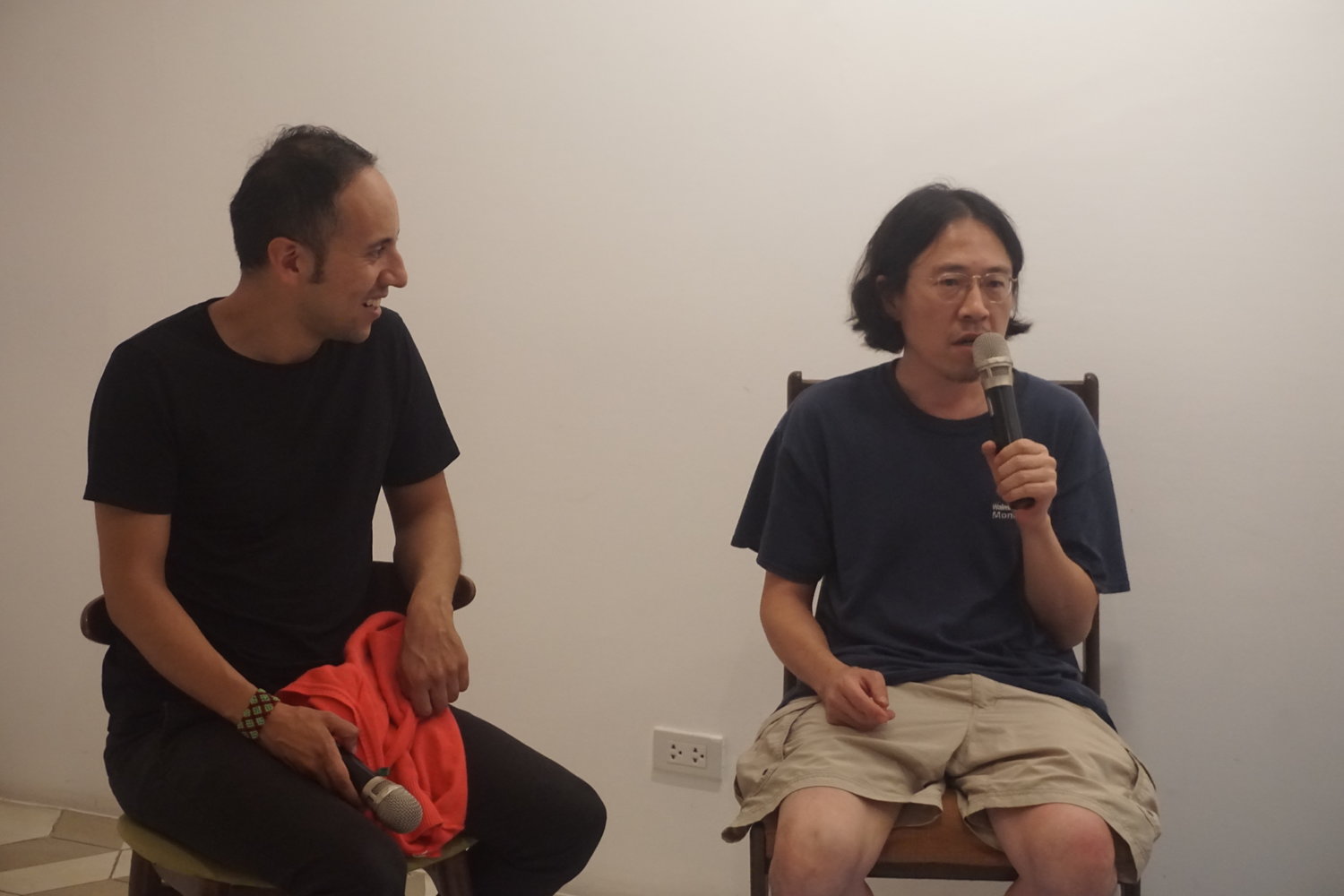
James T. Hong
Event
August 3, 2020
Last June 15 (Saturday), Bellas Artes Outpost held a screening of James T. Hong’s documentary film entitled Terra Nullius or: How to be a Nationalist (2015)

It follows three sets of nationalists from China, Taiwan and Japan and tackles the geopolitical issues surrounding the disputed islands known as Senkaku in Japanese, Diaoyutai or Diaoyudao in Chinese, or The Pinnacle Islands in English. After the screening, there was a discussion led by Inti Guerrero, BAP’s Artistic Director.
Film Screening: Terra Nulluis Or: How To Be A Nationalist (2015)
As the Philippines is also experiencing similar issues with claims on the islands of the West Philippine Sea, questions arose from the talk that dealt with the motivation and commitment of these nationalists towards their territorial claim on the islands. James’ first hand experience with disparate nationalist groups revealed that the issue is not entirely politically or economically driven, but also driven by a religious outlook. In the film, there were scenes from different nationalists that show their devotion to their beliefs while rituals and rites of passages were done for the sake of the disputed territory.
An interesting exchange occurred between James and a member of the audience, who described his experience visiting the disputed islands in the West Philippine Sea. He shared that most of the nationalists fighting for the claim on the disputed territories of Taiwan, China and Japan in James’ film were elderly and male, compared to in the Philippines where it is mostly student and youth activists who are fighting for the country’s ownership of these islands.
Eskwela: Atrocities, Nationalism, Truth and Race Or: The Horror at the Basis of All Good Things

Following the film screening, James T. Hong presented his research and work on the controversial topic of Japanese biological warfare during an Eskwela seminar under the topic of“Asia Pacific: Visual histories of War and Postwar.” He explored issues of historical revisionism and the way ‘truth’ concerning certain historical events is frequently manipulated to reflect nationalistic, ethnic, scientific, or other political concerns in the present. He also highlighted how different education systems shape our conceptual schemes and prejudices, especially in the context of mass media and dissemination of ‘fake news’.
James showcased two works, Total Mobilization (2004-2006), a meditation on migration and the potential end of ‘White America’, and Lessons of the Blood (2004-2010), which documents the trauma of those living with open wounds as a result of Japan’s dissemination of disease as weaponry in Northern China during World War II. Focusing on how these victims have dealt with excruciating pain and social ostracization for nearly seventy years, without formal apology or appropriate recognition, Lessons of the Blood reflects on propaganda, historical revisionism, and the legacy of World War II in China.
Throughout the seminar, James focused on the three interlinking principles that underpin and motivate his work: nihilism, resentment and morality. For him, morality is the basis of human existence and the foundation of his work. In conjunction, our contemporary culture of nihilism fosters negative feelings of resentment, to which artistic production is a positive reaction – a way of utilising resentment to find meaning and shift away from nihilism. By spotlighting the tragic circumstances of survivors of biological warfare, James seeks to alleviate human suffering by exploring their intense feelings of loss, pain and resentment, to commemorate and give meaning to their lives.
Bellas Artes Projects
2/F Victoria Towers
Panay Avenue cor. Timog Avenue
Quezon City 1103
info@bellasartesprojects.org
programmes and interesting events.
